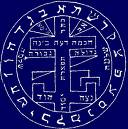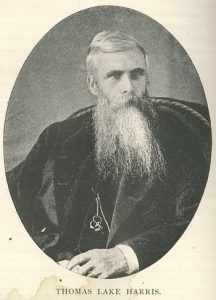 Edward William Berridge MB, BS (1844 – 13 May 1920) was a British orthodox physician who converted to homeopathy.
Edward William Berridge MB, BS (1844 – 13 May 1920) was a British orthodox physician who converted to homeopathy.
Berridge trained at St. Bartholomew’s Hospital in 1864, and then travelled to America to study at the Homeopathic College of Pennsylvania, graduating in 1869.
Edward William Berridge received his MB and BS from London in 1867, and MD from the Homeopathic Medical College in Philadelphia in 1869.
Berridge is considered to be one of the most important teachers of homeopathy in England, and was especially influential in the development of the homeopathic community in Liverpool. In 1868-9 he was Medical Officer at the Liverpool Homoeopathic Dispensary, 13 Hardman Street, Liverpool, that had opened in 1841.
As a pre-Kentian, high potency prescriber, Berridge is believed to have trained many of the leading Liverpool homeopaths, including John Henry Clarke, James Compton Burnett, Thomas Skinner, Giles Forward Goldsborough. Skinner’s conversion from staunch allopath to homeopathy was particularly noteworthy, and was recounted by John Henry Clarke:
“It was through correspondence about some matter apart from medicine that Dr. Skinner in 1873 became acquainted with Dr. Berridge [in Liverpool]; but the acquaintance led to a desire on Skinner’s part to know something about homeopathy, as he had heard of some good cures when over in America. The upshot of it all was that Dr. Berridge prescribed Sulphur for our patient in the MM potency, prepared by Boericke of Philadelphia. When Skinner felt the homeopathic remedy at work inside him it was a revelation indeed. ‘I shall never forget the marvellous change which the first dose effected in a few weeks, especially the rolling away, as it were, of a dense and heavy cloud from my mind.’ He was cured of the constipation, the acid dyspepsia [which he had had all his life], sleeplessness, deficient assimilation and general debility, and restored to a life of usefulness and vigour.”
In 1870, Berridge had relocated to London where, in 1872, he married Amelia Parnell Hobday (1842 – 1943). They had three children, Edward Henry Stuart, Walter Sidney Christian, and Percival William.
By 1878, Berridge was practicing at 4 Highbury New Park, London.
That same year Berridge helped found a new publication, The Organon: A Quarterly Anglo-American Journal of Homoeopathic Medicine and Progressive Collateral Science, in conjunction with Skinner and the Americans Adolf Lippe, and Samuel Swan. Though in existence for only a short period, from 1878 – 1881, The Organon Journal is considered one of the most important homeopathic publications of the 19th century.
Although based in England, Berridge found his homeopathic feet in America where he traveled extensively, forging contacts with, among others, Edward Bayard and Elizabeth Cady Stanton, who recommended him highly.
In June 1880, Berridge attended the meeting of the American Institute of Homeopathy in Milwaukee where an agreement was reached to establish a new society dedicated to the pure homeopathy of Hahnemann. Berridge was centrally involved, not without controversy, and became a founding member and the corresponding secretary of this new International Hahnemannian Association, a name that he had suggested.
Throughout his career Berridge published a number of works on homeopathy, including two materia medica repertories. However, he would eventually become better known for his esoteric and utopian interests.
In May 1889, Berridge became a member of The Hermetic Order of the Golden Dawn occult society. He took the magical name “Respiro” and the motto “Resurgam” (I shall rise again).
Berridge rose quickly through the ranks and, as a member of the Second Order, V. H. Frater Resurgam contributed to Golden Dawn instruction by authoring three of its “flying rolls:”
- Flying Roll V Some Thoughts on Imagination
- Flying Roll XXIV On Horary Astrology
- Flying Roll XXXIII Visions of Squares upon the Enochian Tablets
He associated with the London members of the Golden Dawn who supported the chief of the Order, Samuel Liddell MacGregor Mathers. Among these was Aleister Crowley, who later ridiculed Berridge with typical malice in his Confessions and under the name “Dr. Balloch” in his novel Moonchild.

Thomas Lake Harris
Berridge was also a devoted follower of Thomas Lake Harris. In 1891, he authored the first book of what he projected to be a multi-volume work on Harris’ utopian sect, The Brotherhood of the New Life.
It was Berridge’s enthusiastic embrace of Harris’ sexual ideas that caused consternation among some of the female adepts in the Golden Dawn. One of these was Annie Horniman, who complained to Mathers that Berridge “was not a fitting member to be an officer of the Order because he issued a pamphlet and urged doctrines which we all thought impure and mischievous for the younger students to whom he offered them.”
Nevertheless, Berridge retained a position of importance in the Golden Dawn, supporting Mathers during the schism that tore the Order apart a decade later. Berridge opened a new temple, Isis-Urania Temple 3 [A:O] with Mathers‘s blessing, acting as his representative.
According to the 1915 UK & Ireland Medical Directory, Berridge was still listed in practice at 193 Gloucester Terrace, Paddington, London. It was there that he died in May 1920.
Select Publications:
- A Repertory to the Materia Medica (1869)
- Complete Repertory to the Homoeopathic Materia Medica. Diseases of the Eyes (1873)
- Homoeopathy Vindicated: A Reply to Dr. Joseph Kidd’s “Laws of Therapeutics” (1879)
- The Pathogenetic Record: An Arrangement of the Pathological & Toxicological Effects of Drugs, Collected from Medical & General Literature (1880)
- [As Respiro] The Brotherhood of the New Life; An Epitome of the Work and Teaching of Thomas Lake Harris (1896)
- [As Respiro] The Man, the Seer, the Adept, the Avatar; Or, T.L. Harris the Inspired Messenger of the Cycle (1897)


Very Interesting . I would like to know more about the ‘Golden Dawn’ movement & if Edward William Berridge was related to my Grandfather , William Berridge,
born in Glasgow in the early 1800’s.
Edward William Berridge appears to have had a Glasgow connection, through his involvement with Thomas Lake Harris’s Christian spiritualist organisation ‘The Brotherhood of the New Life’. This was an American religious group, which nonetheless had a strong presence in Glasgow. According to the biography of Harris by Schneider and Lawton, Berridge was in Glasgow in 1890s and had strong ties to other Harris’s disciples there. There are several letters by him in the Harris archives, which are held in the US, but are also on microfilm and can be obtained in Britain. See Herbert W. Schneider and George Lawton, ‘A Prophet and a Pilgrim’ (New York, 1942). There are also several reference to Berridge in Alex Owen, ‘The Place of Enchantment’ (Chicago, 2004). Feel free to contact me directly if you would like further references.
Tanya, hi
Many thanks for the Info.
Sorry I have taken soooo long to reply but it only feels like a few weeks 🙂
Are you involved in tracing Family Trees/Heritage ?
Feel free to contact me at [email protected]